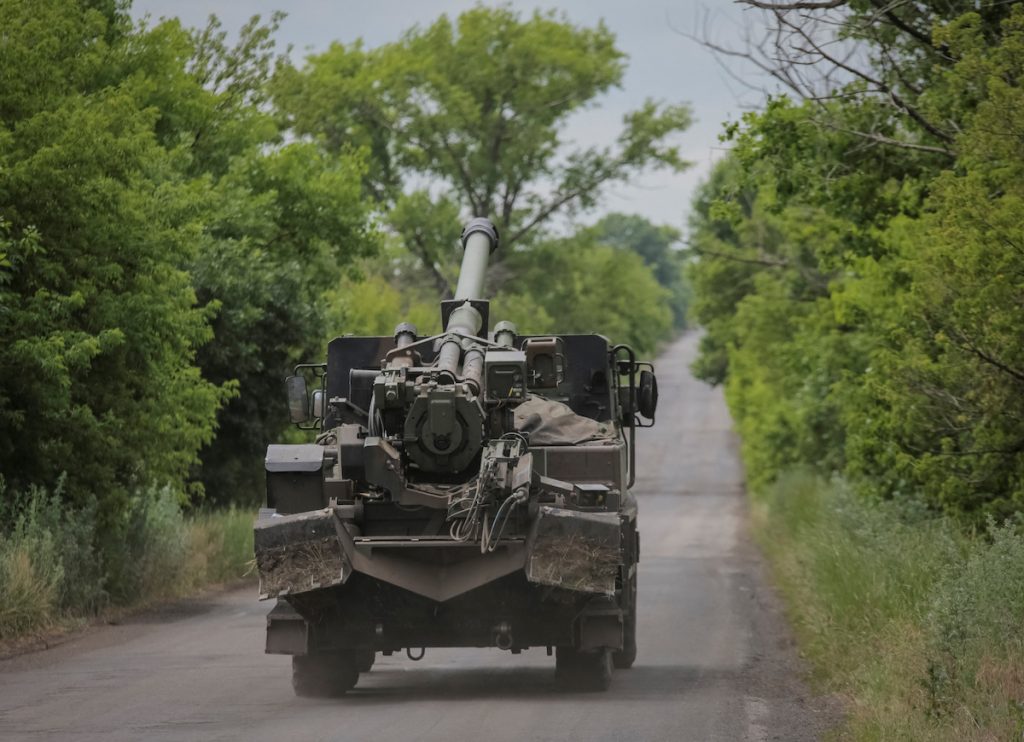Finally, the Ukrainian spring counteroffensive seems to have arrived. Expectations are high, but the uncertainties are even greater. It is still too early to say with any certainty what the results and consequences will be for the war, or even for the internal situation of the two regimes — especially since the initial results so far seem rather mixed.
Indeed, many analysts believe that the most coherent military objective for Kiev would be to try to break through the Russian defense and succeed in cutting the land link between the Crimean Peninsula, annexed by Russia in 2014, and the Donbass. But despite the weapons, tanks, ammunition, and other modern equipment sent by the imperialist powers of NATO, the advance of Ukrainian forces is proving complicated for the time being. There have been reports of the destruction or abandonment of some of this equipment after failed offensives, including four Leopard 2 tanks and 16 American M2A2 Bradleys. This is partly explained by the differences between defensive and offensive operations; the attacking force is more exposed to attacks by the defending force on its most powerful armor and equipment.
These setbacks make it difficult to assess the Ukrainian government’s true military and political objectives. All the more so as Kiev’s main partners are publicly expressing opinions that seem to run counter to Zelenskyy’s declared aims, namely the recapture of a part of Ukrainian territory still under Russian occupation. U.S. Secretary of State Antony Blinken, for example, has declared that he would like to see a victorious counteroffensive that would “push Putin to finally focus on negotiating an end to the war he started.” French president Emmanuel Macron has made similar statements.
The Ukrainian government has repeatedly said it will not negotiate with Russia until the latter’s troops leave Ukrainian territory, including Crimea. So the question stands: What are the real objectives of this counteroffensive? Is Zelenskyy trying to use this operation to pressure imperialist governments to guarantee Ukraine’s future integration into NATO? Are the imperialist leaders trying to push Zelenskyy to negotiate as soon as the counteroffensive is over?
All this, however, does not mean that Russia is in a position of strength and has overcome its own contradictions on the military and political fronts. Indeed, the gains from its winter offensive have been very limited. The capture of Bakhmut is a meager consolation after the loss of enormous amounts of weaponry and, above all, fighters. These mixed results have led to friction within the military and security apparatus of the Kremlin regime.
For several weeks now, there have been public disputes between the head of the private paramilitary group Wagner, Yevgeny Prigozhin, and Minister of Defense Sergei Shoigu. The Wagner Group boss accuses Russian defense officials of boycotting his fighters by not sending ammunition, among other things. The latest dispute concerns the defense minister’s decision to require paramilitary groups fighting in Ukraine to sign an agreement with his ministry, which Prigozhin refuses to do.
Putin, who usually stays on the sidelines of such disputes, seems to be siding with his minister this time. But as the Financial Times reports,
Even as he backed the defence ministry’s move to subordinate the militias, Putin implied that much of Prigozhin’s criticism of the army had been correct — a possible sign Wagner had yet to entirely lose his support.
“At the start of the special military operation, we quickly realized that the ‘carpet generals’ … are not effective, to put it mildly,” Putin said. “People started to come out of the shadows who we hadn’t heard or seen before, and they turned out to be very effective and made themselves useful.”
But if Russia is not in a position of strength, that doesn’t mean it hasn’t learned to take advantage of some of the ground it has conquered. Indeed, Western analysts no longer hesitate to point out that the Russian army has learned from its mistakes at the outset of the war. Moreover, they “denounce” Western leaders for failing to appreciate this new reality and continuing to believe that Ukraine can dominate the military terrain.
As military analyst and former U.S. Army colonel Daniel L. Davis writes,
As of November 2022, it was fair to say the Russian general staff had been outperformed by the Ukrainian general staff. Many pundits in the West concluded that Russian troops and leaders were deeply flawed and incapable of improving, believing that Russia would remain incapable tactically for the duration of the war.
What many of these analysts failed to recognize, however, is that Russia has vastly more capacity to make war, both in terms of material and personnel, and therefore has the capacity to absorb enormous losses and still remain viable. Further, Russian history is replete with examples of starting out poorly in wars, suffering large casualties, and then recovering to turn the tide. Ukraine, on the other hand, has significantly fewer resources or troops and therefore has less room for error.
Later, the same analyst sets out a very pessimistic view of Ukraine’s chances of military victory:
Ukraine is now faced with a world-class dilemma: should they use their last offensive capacity in a last gasp of hoping they inflict a grave wound on the Russians defending in the occupied territories or preserve them in case Russia launches a summer offensive of their own? There are serious risks with either course of action. I assess there is currently no likely path for Ukraine to achieve a military victory. Continuing to fight in that hope may perversely result in them losing even more territory.
A defeat in the Ukrainian counteroffensive could have major consequences for Zelenskyy’s government in terms of Western support. It could bolster the positions of those who believe that the time for negotiations has come, and strengthen the political parties who are increasingly expressing reservations about the level of military assistance going to Ukraine. This is especially the case in the United States, which is entering an election year. Both Donald Trump and Ron DeSantis, rivals for the Republican Party nomination, have asserted that Ukraine is not among the country’s “vital interests.”
Neither imperialist diplomacy nor continuing the war has even remotely progressive prospects for the working class and oppressed in Ukraine and Russia. On the contrary, in the absence of any revolutionary alternative for the workers, Ukraine (and Russia) is heading for a period of enormous setbacks and attacks on the living conditions of millions of working-class people. This new period could prove even more catastrophic than the post–Cold War era, which saw the restoration of capitalism throughout the region, even if this war is a sort of sequel to that period of capitalist restoration. Once again, avoiding this barbarity falls on the shoulders of the workers, on their ability to organize and adopt a policy of class and revolutionary independence in the face of the reactionary plans of the national bourgeoisies and imperialists.
Originally published in French on June 14 in Révolution Permanente.
Translation by Emma Lee











